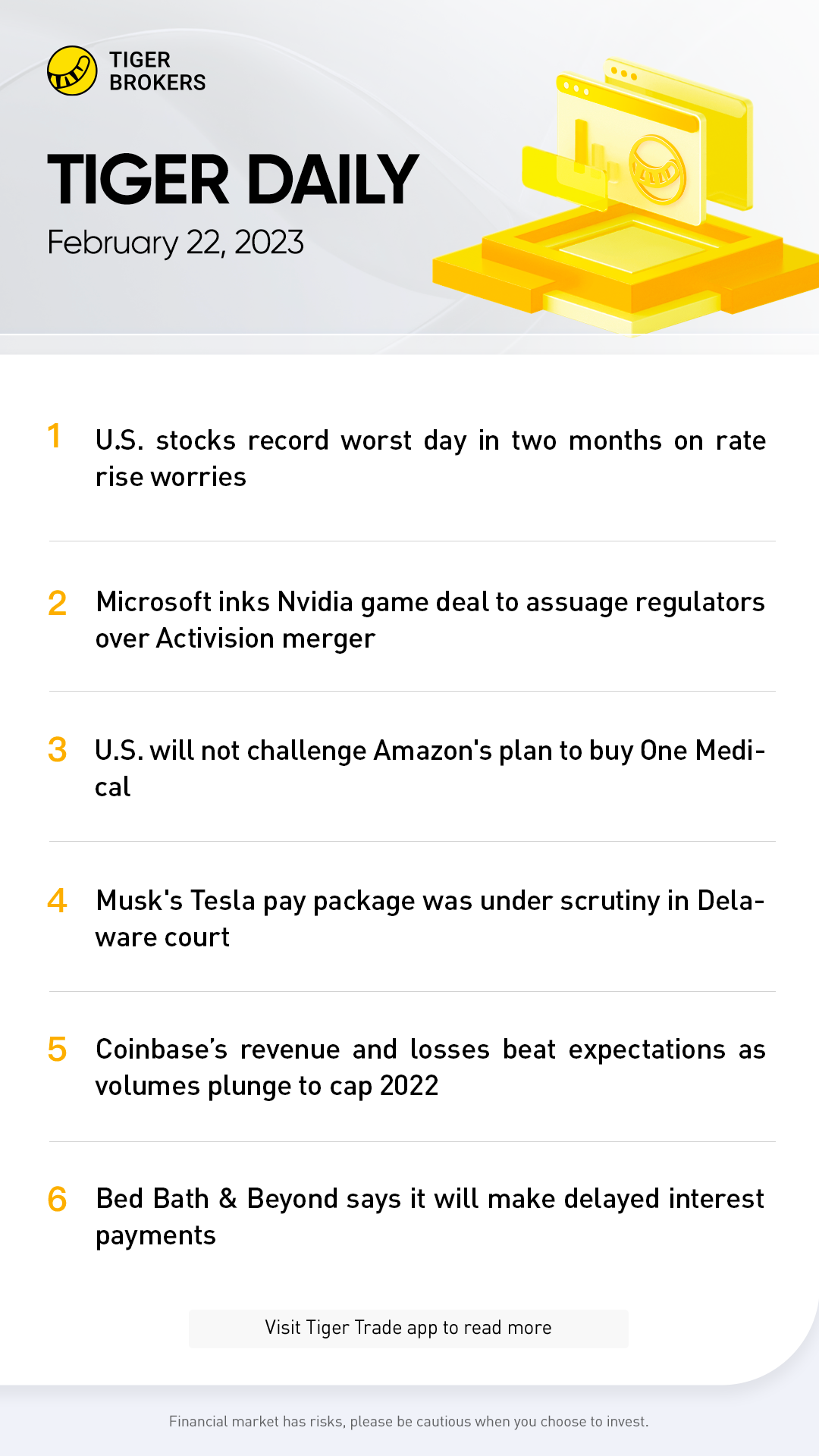The S&P 500 and Nasdaq ended down for the third straight session as Wall Street slumped on Tuesday, with investors interpreting a rebound in U.S. business activity in February to mean interest rates will need to stay higher for longer to control inflation.
The S&P Global Purchasing Manufacturer's index, which reflects business activity in the United States, returned to expansion for the first time in eight months in February. The 50.2 reading, up from 46.8 in January, was buoyed by a robust services sector, according to a survey.
The report adds to a recent slew of economic data which has painted a picture of a resilient economy, which continues to perform against a backdrop of multiple rate-rises by the central bank in 2022 aimed at tamping down inflation.
With inflation still far from the Fed's 2% target, and the economy retaining much of its vigor, money market participants have been revising upwards where they see the Fed fund rates peaking - currently at 5.35% in July and staying near those levels throughout the year.
"Today, the realization is that the Fed is not kidding around about higher for longer, and in fact it might a little bit higher for a little-to-a-lot bit longer," said Carol Schleif, chief investment officer at BMO Family Office.
U.S. stocks had an upbeat start to the year after their worst annual showing in more than a decade in 2022, as investors hoped the central bank's rate-hike cycle was nearing its end.
With this positive mindset driving indexes higher, it makes equity markets susceptible to pull-backs when data undermines expectations on what the Fed might do.
"The market keeps looking for a dovish pivot, and they are just not going to get it," said Schleif.
Investors will be looking to the minutes detailing discussion at the Fed's last policy meeting, due out on Wednesday, for further clues on attitudes within the central bank on rates.
According to preliminary data, the S&P 500 lost 81.85 points, or 2.01%, to end at 3,997.39 points, while the Nasdaq Composite lost 294.72 points, or 2.50%, to 11,492.55. The Dow Jones Industrial Average fell 693.35 points, or 2.06%, to 33,133.34.
Among those hit by Tuesday's widespread declines were big tech stocks, with Tesla Inc, Amazon.com Inc, Microsoft Corp and Google-parent Alphabet Inc all falling.
Not helping them was the fact the U.S. benchmark 10-year Treasury notes hit a fresh three-month high.
Higher yields typically weigh on growth stocks, whose valuations tend to be based on future profits that are discounted heavily as rates go higher.
Meta Platforms Inc ended lower. The Facebook parent had initially been buoyed by confirmation it was testing a monthly subscription service called Meta Verified, which will let users verify their accounts using a government ID and get a blue badge.
Elsewhere, Home Depot Inc slumped to a three-month low after the No. 1 domestic home improvement chain warned of weakening demand and issued a dour profit forecast for 2023.
Smaller rival Lowe's Cos Inc fell ahead of its results next week.
Walmart forecast full-year earnings below estimates and painted a grim picture of hotter-than-expected food inflation squeezing profit margins. However, the world's largest retailer recovered from an initial decline to advance.
Analysts are expecting earnings of S&P 500 companies to grow by 1.6% in 2023, compared with 4.4% growth estimated at the start of the year, as per Refinitiv data.
All of the major 11 S&P 500 sectors fell, with the consumer discretionary index's decline leading the way.

